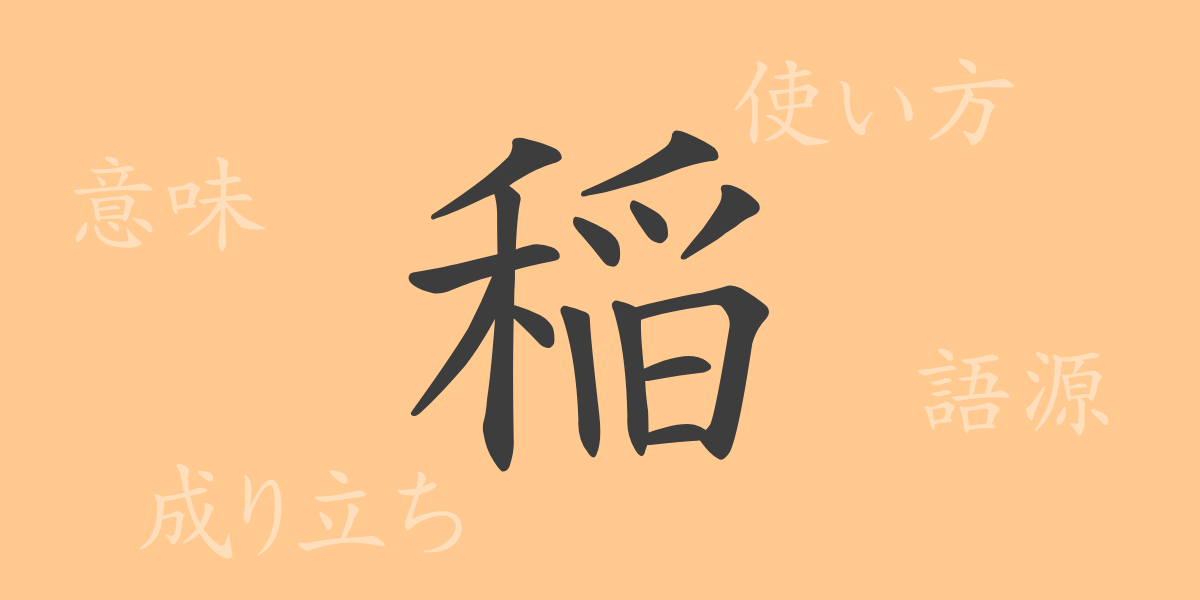The swaying green rice fields, an indispensable part of the Japanese landscape, have soothed the Japanese soul since ancient times. Rice is not just central to Japanese cuisine but is deeply rooted in Japan’s history, language, and culture. This article delves into the commonly used Kanji ‘稲 (いね)’, exploring its origins, meaning, usage, pronunciation, and associated phrases and idioms, enriching our understanding of its charm.
Origins of ‘稲 (いね)’
The origin of the Kanji ‘稲’ traces back to the ancient Chinese character ‘稻’, which depicted the image of rice plants bearing grains. Incorporating the water radical ‘氵 (さんずい)’, it reflects rice cultivation’s dependence on water. Over time, the character evolved into the current ‘稲’, symbolizing its agricultural significance.
Meaning and Usage of ‘稲 (いね)’
‘稲’ primarily refers to the rice plant, a member of the grass family, and often specifically to the rice grains. It symbolizes the plant’s value as a food source. In Japan, rice holds a sacred aspect, exemplified by traditions such as decorating with ‘鏡餅 (mirror mochi)’ during New Year celebrations.
Pronunciation, Stroke Count, and Radical of ‘稲 (いね)’
The Kanji ‘稲’ is closely tied to Japanese culture and everyday life.
- Readings: On’yomi ‘トウ’, Kun’yomi ‘いね’, ‘いな-‘
- Stroke Count: ‘稲’ consists of 14 strokes.
- Radical: The radical is ‘禾 (のぎへん)’, associated with Kanji related to grains.
Phrases, Idioms, and Proverbs Involving ‘稲 (いね)’
‘稲’ appears in various idioms and proverbs, enriching Japanese expression. For instance, ‘稲光 (いなびかり)’ refers to the flash of lightning, ‘稲妻 (いなずま)’ describes the act of lightning streaking across the sky, and ‘稲穂 (いなほ)’ symbolizes a good harvest, representing rice cultivation. The proverb ‘稲にも十人十色 (いなにもじゅうにんといろ)’ illustrates how preferences vary from person to person.
Conclusion on ‘稲 (いね)’
Central to Japanese food culture, ‘稲’ retains its significance in the realm of language, reflecting its historical and cultural importance. From ancient times to the present, rice continues to be integral to Japanese life. This article hopes to have deepened your understanding of its rich history and cultural significance.

























